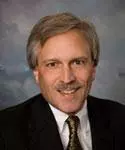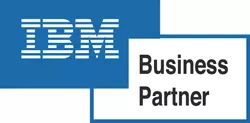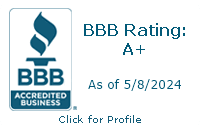In a specialized world, are generalists still needed? Or are they needed more than ever?

On August 1, 2019, my firm reached a monumental milestone – Todd Herman Associates turned 30 years old!
Three decades. Wow – that's a long time. While I sometimes feels like it's been longer, the years have actually gone by quickly because I always have, and still do, love what I'm doing.
"Startups are easy, stayups are hard"
A couple months ago, I included the book It Doesn't Have To Be Crazy At Work, by Jason Fried and David Heinemeier Hansson, in my Summer 2019 Book Reviews titled "Leadership Lessons to Take to the Pool." These guys co-founded an online project management application, Basecamp, in 1999 – so congratulations to them on two decades in business!
Near the end of the book, they shared their thoughts on "Startups are easy, stayups are hard." Here are two paragraphs that stuck with me:
Getting things off the ground is so hard that it's natural to expect it'll just get easier from here. Except it doesn't. Things get harder as you go, not easier. The easiest day is day one. That's the dirty little secret of business.
. . .
Ultimately, startups are easy, stayups are hard. Keeping the show running for the long term is a lot harder than walking onstage for the first time. On day one, every startup in the world is in business. On day one thousand, only a fraction remain standing. That's reality. So pace yourself. Don't burn out early thinking the hard part is behind you. (pages 210 and 211)
Doing the math for 20 years, Jason and David have had Basecamp up and running for about 7,305 days. Todd Herman Associates' 30 years equates to 10,957 days.
While I can't speak for the Basecamp co-founders, I attribute THA's longevity to a concept I recently came across called "range" in a book titled, appropriately enough, Range: Why Generalists Triumph in a Specialized World, by David Epstein.
What Is "Range"?
The author of Range characterizes "range" as "breadth, diverse experience, interdisciplinary thinking, and delayed concentration [of specialization] in a world that increasingly incentivizes, even demands, hyperspecialization." (page 13). Citing numerous examples from sports, art, music, scientific research, and other areas, he makes a convincing case that a person having broad experiences early in life and THEN specializing in a field of interest will, in the long run, do better than someone having specialized experience from the start.
Developing My Range For Over Four Decades
A few points from Range stood out for me, and encouraged thoughts about my own range.
Specialized Experiences – Having specialized experiences from the start is good in what the author calls "kind environments" – that is, situations where rules are well-known and tactics are repeatable. Examples cited for kind environments are chess, golf, and firefighting. Keep in mind, it's still difficult to become an expert in such fields – however, someone can become proficient in these fields by doing the activity again and again, and consciously look for ways to get better.
- Todd – I majored in both Accountancy and Mathematics at Wake Forest University. After graduation, I joined the Greensboro office of Arthur Andersen & Co. (AA&Co.). An auditor for three-quarters of my six year total tenure, I served clients in the textile, apparel, kitchen equipment, health care, and transportation industries. My Accountancy major and AA&Co.’s outstanding new staff training prepared me well for the specialized work of auditing.
Wicked Environments – Such environments are those where "the rules of the game are often unclear or incomplete, there may or may not be repetitive patterns and they may not be obvious, and feedback is often delayed, inaccurate, or both." (page 21). Most modern work is done in "wicked environments" such as business and politics, and success in such fields requires "knowledge transfer: the ability to apply knowledge to new situations and different domains." (page 45). Success in such areas requires the ability to adapt to the complexity inherent in the area.
- Todd – My other major, Mathematics – which today would include a minor in Computer Science – along with excellent professors at a fine liberal arts school equipped me to be an internal consultant in the firm's Chicago World Headquarters as part of the audit software R&D group. The group’s mission was to be 3-5 years ahead of AA&Co. auditors in the field, and to keep them 3-5 years ahead of other firms’ audit technology. Ensuring we stayed far ahead of other firms required us to think creatively and make up the rules as we went.
Versatility – Versatility helps an individual adapt to complexity, and the path to achieving this, as identified by psychologists, is to have a "sampling period" across various domains and activities, followed by specialization in a chosen domain and activity.
- Todd – I’ve come to view my two distinct positions with AA&Co. as having been my sampling period for what I ultimately did – launching my own consulting firm, combining my business and accounting experiences with my systems skills.
Making Connections – Questions deployed by teachers are generally either "using procedures" questions, consisting of practicing something that was just learned, or "making connections" questions, comprised of students connecting a topic to a broader concept. "Using procedures" questions yields fast learning yet poor retention, while "making connections" learning is slower yet produces excellent retention. As the author puts it, "Learning deeply means learning slowly." (page 97).
- Todd – The most important things I took from both Wake Forest and Arthur Andersen? The ability to think critically, and to quickly learn on my own – key traits for successful consultants. During THA’s 30 years, my favorite projects have been troubleshooting inventory discrepancies. Why? Because these require me to imagine everything that could go wrong in recording inventory transactions, then make the connections between my observations and the transaction processing to find root causes of discrepancies.
Breadth of Learning – Breadth of learning allows a person to draw analogies from multiple domains. The author cites a study of world-class research labs that yielded a startling finding – those labs having team members from multiple domains used many analogies to produce more new findings than those teams whose members came from a few domains. In fact, "in the lone lab that did not make any new findings ... everyone had similar and highly specialized backgrounds, and analogies were almost never used." (page 119).
- Todd – By necessity, becoming an entrepreneur also requires becoming a generalist so as to do – or farm out – the sales, marketing, accounting, people, process, and technology tasks required for business success. Starting THA marked the beginning of my true business education – something that no degree could ever convey.
Wanting It NOW – The problem today? Companies want people NOW whose knowledge is "both durable (it sticks) and flexible (it can be applied broadly)" (page 85), yet this type of knowledge must be acquired SLOWLY.
- Todd – My education and career illustrate the kind of durable and flexible knowledge that can only be developed slowly – in my case, over 41 years of education and experience.
THA – Focused Generalists
I've always thought of myself as a generalist, knowledgeable in several domains, yet who has the ability to specialize sufficiently quickly to adapt to changes in the technology market. This description applies to our associates as well.
This is how I describe my firm …
Todd Herman Associates is a business technology consulting firm, focused on solving non-routine business technology issues.
The key phrase in this mission statement is "business technology consulting" which combines business knowledge with technology skills. Graphically:

While there are many business consulting practices and numerous Information Technology (IT) companies (typically focused on infrastructure as opposed to business systems), few combine both sets of skills because they are from two different domains. The overlap in the Venn Diagram is where THA plays.
Our people combine knowledge of business operations with skills in Enterprise Resource Planning (ERP) systems and in integrating different systems. Both business and systems are fairly large domains making us "generalists," yet combining the two domains makes us "focused" where the domains overlap. Our range allows us to solve problems other firms cannot.
When You Need the Range of THA ...
I realize most businesses, at any particular point in time, might not need the range of knowledge and experience combined with the versatile problem-solving capabilities my firm offers. Still, when you need it – or you see someone who needs it – you'll know it. For example, when other firms have tried to solve a problem and could not, THA’s range and versatility are likely needed.
That's how I made it to 10,957 days – by you and others like you recognizing opportunities and spreading the word about THA widely. Whether you have known us for 3 days or for 30 years, thank you – thank you very much!
Sincerely,

Todd L. Herman






